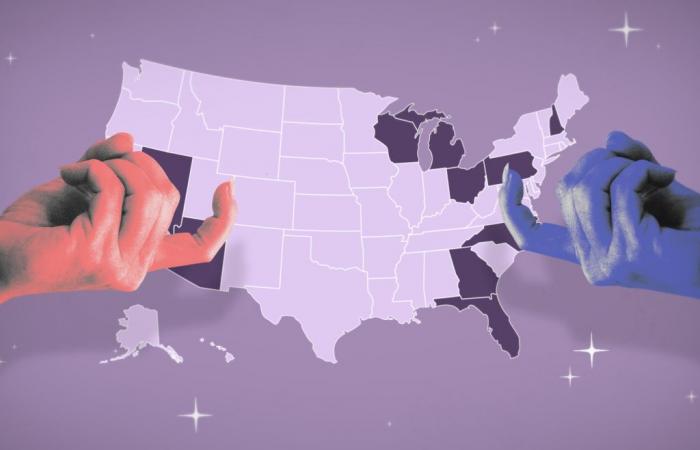Understanding American political culture and the electoral system is not necessarily easy from France. While the American presidential election of November 5 is playing out on colossal issues that go far beyond the borders of the United States, the Vertical Videos service of the Monde has prepared a short guide for you which should allow you to better understand the subtleties of this electoral event.
1. How does the American presidential election work?
In the United States, the presidential election is so designed that you can win it by having obtained fewer votes nationally than your competitor. It's even happened five times in history. This is mainly due to the fact that it is an indirect election: voters do not vote for the president but for electors who will in turn designate the winner.
2. Why do we say that the election is being played in a handful of states?
This is the question of swing states and it is essential for understanding the outcome of the election. The American electoral system means that only a few states, more or less the same in each election, are really decisive.
3. How will election night take place?
If you plan to follow the results as they fall, we have some tips for you and explain how “American Night” unfolds.
4. How the slave trade shaped American political life
For decades, American political life has been structured around two major parties – Democratic and Republican – whose history we trace. And the latter is intimately linked to the question of slavery.
The Democratic and Republican parties have not always defended the values that define them today. During their history, a shift has caused a sort of inversion: the democrats, originally slaveholders, are the ones who today particularly defend the rights of Afro-descendants.
5. Why a donkey, why an elephant?
The symbols that traditionally represent the two main American political groups have a history, and these two animals, donkey and elephant, were obviously not chosen at random.
6. Where do American presidents come from?
In your opinion, which state has produced the most presidents? If you're thinking of California, Florida, or Texas, you're wrong. We'll explain it to you.






